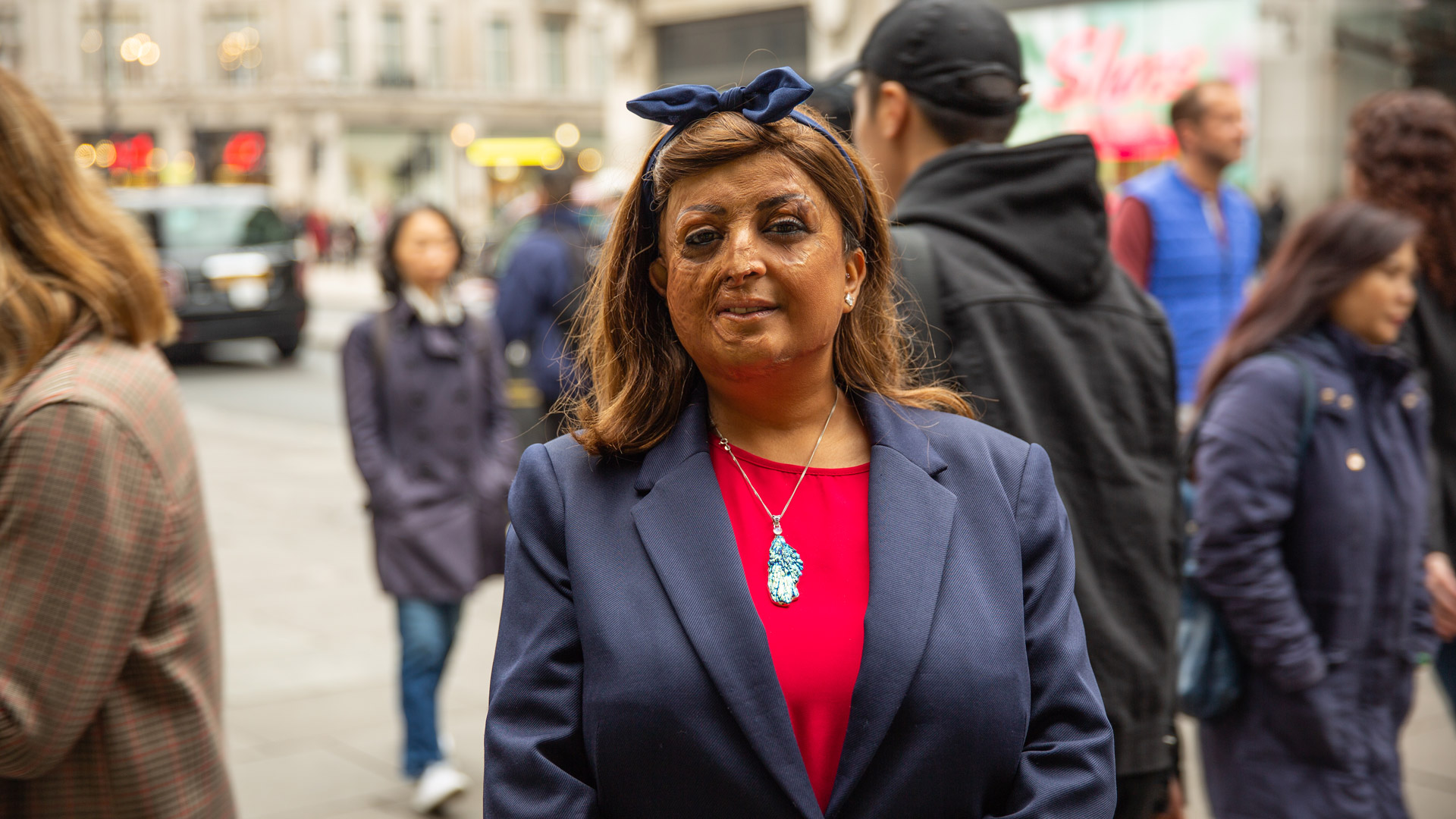Handling comments and questions
View our tips, techniques and suggestions to help you handle comments and questions about your visible difference or disfigurement.
Having strategies to hand can really help if you notice people staring at you. We share some techniques to help you cope.
Most people with a visible difference or disfigurement are all too familiar with people staring in curiosity or surprise. Staring can be difficult, uncomfortable, distressing or even offensive.
Many people with a visible difference find that it can be useful to have a plan for how to react when someone stares at you.
On this page, we reflect on the question “Why do people stare at me when I have a visible difference?” – and share some tips and techniques you can use if you notice people staring at you.
Before working out how to react to people looking at you when you have a visible difference, it can help to try to answer the question “Why do people stare at me?”
Not everyone will have met someone with your condition, mark or scar before – and most of us are naturally curious when we see someone or something new. People often look longer than usual without realising that they are doing so, to make sense of what they are seeing. People might stare, double-take or turn away because they are surprised, uncomfortable or unsure of how to act.
Most people are not being deliberately hurtful. Maybe you could think of a time you were interested, shocked or surprised by someone’s different appearance – it’s possible you were also curious and looked for longer than usual. You may find this reassuring if you see people staring at you.
Although it may help to remember that most people are not being unkind and don’t want to hurt your feelings, it can still be exhausting and upsetting to experience people staring whenever you go out.
Every day, people stare at me. People need to be aware of how that makes someone with a visible difference feel – having a visible difference means never having a day off. I don’t get to take my scars off and forget about them. Every day when I leave the house, I need to check in with myself to see how I am going to handle staring or comments.
If you find people staring at you because of your visible difference or disfigurement, the way you respond is up to you. You may choose to respond differently depending on the situation and how you are feeling at the time.
If you would like to, try these tips for handling staring in different situations:
It is possible to control a social situation where you find people are staring just simply by smiling or saying, “Hi”. I work in a shop and find that most people smile back, reply and actually realise that you are “normal”. Others will continue with what I consider to be hostile behaviour, which can be upsetting, but I just think what a waste of time they are!
You might notice people staring at your visible difference or disfigurement and decide that you are not going to respond to them. This doesn’t mean you are “letting them get away with it”. It is in your power to choose how you will respond to others.

If you're finding stares and comments hard to deal with, please get in touch. Our wellbeing team offers tailored support, from individual counselling and support sessions, to group sessions and self-guided resources.
Get in touchYou may decide to move away from the person who is staring because you do not feel comfortable.
Sometimes, people staring at you because of a visible difference or disfigurement can be annoying and upsetting. Reassuring self-talk can help you manage your feelings.
Start by asking the question “Why do people stare at me?” Then reassure yourself that you are OK by repeating a helpful phrase to yourself. Here are some examples:
For this last example, you could use your own personal motto. View our confidence-building techniques page to find out how to develop a motto.
Preparing some responses in advance can help with handling staring. Try the exercise below and write your answers down or make a note on your device:
Your eldest child has just started school. You arrive to collect her early. Several other parents are there and you become aware that one mother is staring at you. This is someone you are likely to come across many times and you need to be able to meet her without embarrassment in the future.
Think of what you would do and what you would say in each of the following scenarios:
Now develop the exercise:
View our tips, techniques and suggestions to help you handle comments and questions about your visible difference or disfigurement.
In this guide, we share two simple tools to help you handle unwanted attention – whether that be comments, questions or staring.